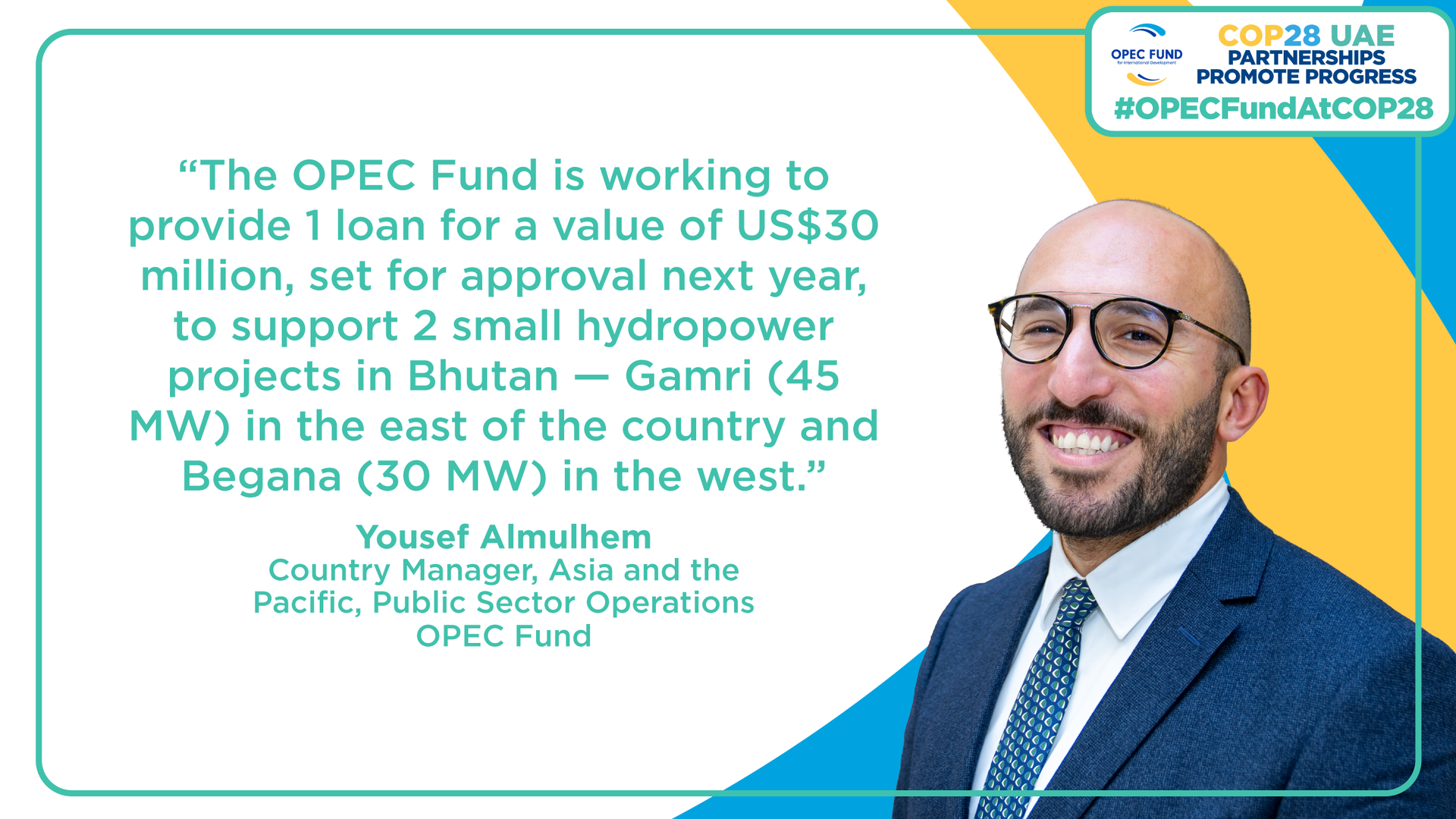We use Cookies. Read our Terms
- News
- Bhutan: The Role of Hydropower in Transforming the Economy
Bhutan: The Role of Hydropower in Transforming the Economy
December 6, 10:00-11:00, OPEC Fund Pavilion

Yousef Almulhem — Country Manager, Asia and the Pacific, Public Sector Operations, OPEC Fund for International Development
--
Nestled in the Himalayas between India and China, Bhutan has enormous hydropower potential, boasting over 35,000 MW of clean renewable energy from more than 150 sites nationwide. The country has so far developed just 7 percent of its hydropower potential, yet the sector already accounts for an impressive 40 percent of national revenues and 20 percent of the national economy.
The target audience for this session includes a mix of stakeholders in the hydropower sector, as well as multilateral development banks wishing to work with Bhutan as it graduates from the UN list of Least Developed Countries. This event presents clear opportunities from various angles in terms of development, investment and climate action en route to net zero.
Our panelists include:
- Dasho Chhewang Rinzin, Managing Director of Druk Green Power Corporation, who will speak on behalf of the government-owned entity responsible for hydropower projects.
- Karma P. Dorji, Director of Department of Energy, Ministry of Energy and Natural Resources, Bhutan, who will cover the bigger picture.
- Yeshi Lhendup, Development Coordination Manager, Department of Macro-Fiscal and Development Finance, Ministry of Finance of Bhutan, who will cover the economic perspectives and other opportunities.
- Somnath Basu, Senior Advisor ESG, OPEC Fund for International Development, who will cover the environmental and social angles.
The OPEC Fund is working to provide 1 loan for a value of US$30 million, set for approval next year, to support 2 small hydropower projects in Bhutan — Gamri (45 MW) in the east of the country and Begana (30 MW) in the west. These power plants will mainly cover local demand through mini grids, but will have the option to plug into Bhutan’s main grid, which already exports energy to neighboring India and Bangladesh, at a later date.